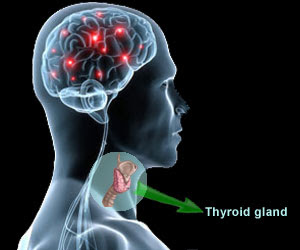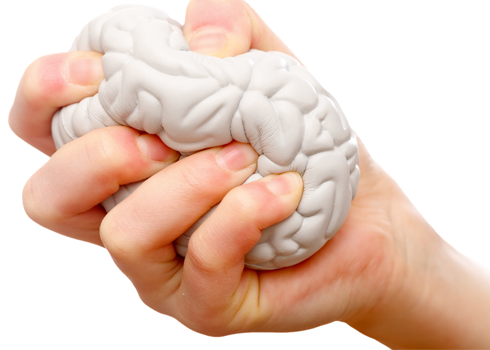You often hear that modern life is making us sick.
It’s true. A lot of people are suffering from diseases of civilization – including neurodegenerative and psychiatric illnesses – because there is a mismatch between our ancient physiology and the western diet and lifestyle (1).
Most people are aware of some of the causes – poor dietary choices, nutrient deficiencies, excess stress, emotional trauma, lack of exercise, etc.
But what if there was something in our modern environment that we couldn’t see that was making us sick?
Well, over the past several months, I’ve been learning more and more about the brain and mental health effects of man-made electromagnetic fields (EMFs).
They’re actually a huge problem.
An increasing amount of scientific research is showing that they can cause widespread neuropsychiatric effects, including depression (2).
Learning about this inspired me to go live in the woods for 11 days. Yes, I’m serious :-)
Read on to learn more about EMFs and my experience getting completely away from them.
Researchers and Doctors Are Sounding the Alarm about the Brain and Mental Health Effects of EMFs
“I have no doubt in my mind that at the present time, the greatest polluting element in the earth’s environment is the proliferation of electromagnetic fields. I consider that to be far greater on a global scale, than warming, and the increase in chemical elements in the environment.” – Dr. Robert Becker, MD, two-time Nobel nominee, and author of The Body Electric: Electromagnetism and the Foundation of Life
Man-made EMFs emitted by cellphones, Wi-Fi internet, and radio are considered radiofrequency (RF) EMFs.
People can experience a wide range of brain and mental health symptoms from these EMFs, including EEG changes, sleep disturbance/insomnia, depression, headache, tinnitus, brain fog, dizziness, listlessness, irritability, malaise, restlessness/anxiety, fatigue/tiredness, concentration/attention dysfunction, memory and thinking difficulties.
This has been well documented in European countries. The prevalence of EMF sensitivity in Sweden, Switzerland and Austria have been reported to be 1.5%, 3.5% and 5% respectively (2, 3, 7).
But I suspect the amount of people who are struggling with the negative effects of EMFs is actually higher because most people are simply not aware of the problem.
As of March 22, 2017, 225 scientists from 42 countries have signed a letter that urges the United Nations, the World Health Organization, and governments around the world to develop stricter controls on devices that emit EMFs. Altogether, these scientists have published more than 2,000 peer-reviewed papers demonstrating the biological and health effects of radiofrequency EMFs.
As a result of the increasing amount of research demonstrating the risk of EMFs, the World Health Organization has now reclassified radiofrequency EMFs as a “class 2B carcinogen”, which places it in the same carcinogenic class as lead and the pesticide DDT (4).
Some European countries have also taken action in response. Switzerland has replaced the wireless internet in schools with wired internet. In Germany, the public health department is recommending their citizens switch off WiFi when they are not using it. And Italy, France, Austria, Luxembourg, Bulgaria, Poland, Hungary, Israel, Russia and China all have set limits on radiofrequency exposure that are 100 to 10,000 times lower than US standards (5, 6).
Meanwhile, the United States rushes forward with the wireless revolution and the rollout of 5G.
What about in Canada? Not much has been done here either, even though more than 50 Canadian doctors and researchers have demanded that Health Canada raise awareness about EMFs, update their EMF guidelines, and provide resources to assist Canadian physicians in treating people with EMF sensitivity.
Dr. Riina Bray, medical director of the Environmental Health Clinic at the Women’s College Hospital in Toronto, has even stood in front of Canadian Parliament to bring awareness to this issue. She says:
“Individuals who are sensitive to EMF, or those with electromagnetic hypersensitivity, are canaries in a coal mine and lucky enough to have discovered what it is that is making them feel unwell. Many of them find everyday life and work difficult and uncomfortable. Most often we see them with family members who thought the patient had gone mad, but then realized that what they were saying was actually true, through observations.
The question that continues to alarm me is this. What of those who have not yet become sensitized, or those who are unwell but have not realized it is the EMFs provoking the problem and continue to try to function in an environment where the electrical and magnetic fields are high?
As a physician who has specialized in the area of environmental health for over 20 years, I am mortified at the lack of accountability regarding radio and microwave radiation use in the everyday lives of Canadians both young and old. There are no longitudinal studies except the one going on right now on people who did not ask to be subjects, who gave no research ethics board consent, and on whom data is not being collected. That is not a study at all.”
I highly recommend you read the full transcript here. It is eye opening.
Dr. Jack Kruse, author of author of the book Epi-Paleo Rx, also talks about the risks of man-made EMFs extensively.
And these three books discuss the issue. I just started reading the first one:
Zapped: Why Your Cell Phone Shouldn't Be Your Alarm Clock and 1,268 Ways to Outsmart the Hazards of Electronic Pollution by Dr. Ann Louise Gittleman, PhD
Earthing: The Most Important Health Discovery Ever by Dr. Stephen T. Sinatra, MD
Disconnect: The Truth About Cell Phone Radiation by Dr. Devra Davis, PhD
Lastly, I highly recommend watching this TV special if you're interested in hearing more experts talk about the effects of man-made EMFs:
My Experience
Two practitioners have confirmed that I’m particularly sensitive to EMFs.
I live and work in the city, so I bought this EMF meter to figure out the amount of EMFs I was being exposed to in my environment.
The result? Lots of radiofrequency EMFs where I spend most of my time, including my downtown apartment.
However, my family has a cottage property about 1.5 hours away from the city. It’s just a cabin in the woods, in the middle of nowhere, away from civilization.
So, I recently went there with my meter to measure the levels.
The result? Dead air. Zero radiofrequency EMFs.
I thought my meter was broken because I’m so used to it displaying a yellow or red warning signal in the city. But at the cottage property, it was green.
So, for 11 days, I lived at this property. I’ve been very quiet on social media because of this.
I had my phone off, the Wi-Fi was off the entire time, and I connected to the Internet only sparingly using an Ethernet cable.
I even went to the electrical panel in the basement and cut the power supply on the circuit breaker sometimes, particularly right before I went to bed.
What did I experience from this experiment?
Deeper, more restful sleep – I usually never dream or remember any dreams. But I had very vivid dreams and remembered them the next morning while in the woods. This rarely happens. The last time this happened, it was when I was doing neurofeedback. I’ve since learned that neurofeedback is protective against EMFs and helps people cope with EMFs [because EMFs alter electrical activity in the brain (18-23)].
Complete elimination of coffee
Reduction in the amount of supplements I had to take – In the city, I usually need to manage some lingering symptoms with supplements and other therapies. But these symptoms faded when I completely removed myself from EMFs.
More mental energy and endurance
Increased focus
Of course, there could be other factors at play and this could have been placebo, but I really don’t think so considering the huge difference in my sleep quality and the amount of dreams I could vividly recall the next morning.
Some people may be skeptical of all this, so let me lay out some of the research showing that EMFs can affect brain function and impact mental health.
Research in Russia shows that much of the impact from EMFs occurs in the brain and nervous system, and 26 studies have associated EMFs with 13 different neuropsychiatric effects (2).
Below are 15 specific ways EMFs can affect your brain and mental health.
1. EMFs Damage Myelin
Myelin is a fatty, white substance that wraps around the end of many nerve cells. It forms an electrically insulating sheath that increases nerve condition speeds.
In other words, it allows your brain to send information faster and more efficiently, making it absolutely essential for the optimal functioning of your nervous system.
This research paper explains that there is an association between EMFs and the deterioration of myelin.
The researchers say there is "an association between RF-EMF exposure and either myelin deterioration or a direct impact on neuronal conduction, which may account for many electro-hypersensitivity symptoms” (9).
I previously provided 25 proven ways to promote the regeneration of myelin.
2. EMFs Reduce Cognitive Function
While I was away from the city, my cognitive function improved. I found that it was easier to read quickly.
In 2009, researchers looked at whether EMFs emitted by cellphones would affect cognitive function.
They found that the participants that were exposed to cellphone radiation demonstrated slower response times during a working memory task (8).
3. EMFs Contribute to Bipolar Disorder
I couldn’t find any scientific research demonstrating that EMFs cause or worsen bipolar disorder.
However, I did find an amazing case study from someone named Carmen in Virginia Beach.
She explains that limiting her exposure to EMFs significantly improved her symptoms of bipolar disorder:
“I was diagnosed with bipolar disorder in 2003.
I have always taken my medications and still even with great doctors and family support, I was not able to avoid the mental hospital in 2010.
In 2014, I started to have some odd health issues that resembled symptoms of a stroke.
It took many months but I was able to identify the root of my symptoms: fluorescent lights, cell towers, WIFI, my cell phone and other things too.
Nobody listened because I have a pre-existing mental condition and attributed some of my symptoms to panic attacks and OCD.
I had to stop working in due to the severity of my symptoms and I had to do a lot of changes in my house, changed WIFI for a hardwire connection straight to the router from computer, changed our home cordless phone for old fashion corded one and all my family stopped using cell phones in the house. I also had to change light bulbs and some other things.
I realized my cell phone on my night table had been keeping me up at night because all of a sudden, I had no trouble sleeping anymore.
Now I can focus on things, I am no longer confused or forgetful, and I am not hyperactive.
Most important of all, I have not had any periods of mania, depression or hypomania since I reduced my exposures to electromagnetic fields.”
You can read her entire story here.
It's important to note that she mentions that she also experienced symptoms from fluorescent lights and had to change the light bulbs in her home.
This is likely because of the negative health effects of blue LED lighting, which I previously wrote about here.
4. EMFs Alter Brain Proteins
Research shows that long-term exposure to EMFs significantly alters the expression of 143 proteins in the brain.
What does this mean to us?
Researchers explain that these changes may affect brain plasticity, increase oxidative stress in the nervous system, and may explain conditions such as headaches, sleep disturbance, fatigue, memory deficits, and brain tumors (13).
In particular, it can lead to neurotic disturbances by upregulating the sympathetic nervous and downregulating the parasympathetic nervous system (15, 17).
In other words, it can directly increase your “fight-or-flight” response, making you chronically stressed and anxious.
And researchers are making it clear that it’s not just “in the person’s head”. One report explains that the response to “electrosmog is physiological and not psychosomatic”. In other words, it’s really affecting the person's body.
Unfortunately, “those who experience prolonged and severe EMF hypersensitivity may end up developing psychological problems”, stress-related behaviours and anxiety disorders due to their inability to work, and the social stigma that their symptoms are imagined rather than real (15, 16).
6. EMFs Affect Neurotransmitters
EMFs also affect neurotransmitters, the chemicals that communicate information throughout your brain.
One study found that radiation from cellphones significantly disrupts levels of serotonin, dopamine and norepinephrine in the brain.
The researchers concluded that this may be why people report that they experience stress, memory problems and learning difficulties from EMF exposure (14).
7. EMFs Affect Thyroid Function
Your thyroid is a small butterfly-shaped gland located in your neck below your Adam’s apple.
As I discussed before, your thyroid gland plays a key role in the optimal health and functioning of your brain. It can impact your cognition, concentration, mood, memory and emotions.
Researchers have found that EMF exposure can affect the structure and functioning of the thyroid gland (10).
One study found that heavy cellphone users have higher than normal TSH levels, and lower than normal T4 levels. These abnormal levels are linked to thyroid dysfunction and hypothyroidism (low thyroid) (11).
Here are some of the brain and mental health symptoms of low thyroid that I’ve experienced:
Chronic fatigue
Low mood
Forgetfulness
Weakness
Sluggishness
Not surprisingly, these are also common symptoms of EMF hypersensitivity.
Check out this post for ways to support your thyroid.
My favourite way is by applying this red and infrared light to my thyroid.
8. EMFs Increase Risk of Attention Deficit Hyperactivity Disorder (ADHD)
Attention deficit hyperactivity disorder (ADHD) is characterized by inattention and hyperactivity.
Yale researchers have determined that cellphone use during pregnancy affects the brain development of offspring, and this can lead to symptoms of ADHD in the children once they are born (12).
“This is the first experimental evidence that fetal exposure to radiofrequency radiation from cellular telephones does in fact affect adult behaviour. The rise in behavioral disorders in human children may be in part due to fetal cellular telephone irradiation exposure.”
9. EMFs May Worsen Symptoms of Autism
A report published in the journal Pathophysiology points out that autism involves many biological disturbances that are very similar to the physiological impacts of EMFs and radiofrequency radiation.
The researchers even say that reducing EMF exposure might reduce symptoms of autism.
“With dramatic increases in reported autism that are coincident in time with the deployment of wireless technologies, we need an aggressive investigation of potential Autism/EMF/RFR links. The evidence is sufficient to warrant new public exposure standards benchmarked to low-intensity (non-thermal) exposure levels now known to be biologically disruptive, and strong, interim precautionary practices are advocated.”
10. EMFs Reduce Melatonin and Disrupt Sleep
Melatonin is a hormone released by your pineal gland, a small gland in your brain. It helps control your sleep and wake cycles (circadian rhythm), and adequate levels of melatonin are necessary to fall asleep quickly and sleep deeply throughout the night.
Melatonin acts as a very potent antioxidant in your brain and can protect against a number of neurodegenerative and mental health conditions (26).
Reduced levels of melatonin are associated with depression and suicide, seasonally affective disorder (SAD), schizophrenia, Alzheimer’s disease and Parkinson’s disease (24).
Unfortunately, 17 independent studies have found that EMFs disrupt the body’s circadian rhythm and natural production of melatonin, leading to sleep difficulties and many adverse health effects (25, 27-31).
Researchers say that the evidence is “substantial and robust” and “there is a sound scientific basis for concluding that” acute and chronic EMF exposure lowers melatonin production, leading to very serious health effects, including depression (25, 32).
That’s why you should turn off all Wi-Fi before bed. I live in a downtown apartment with lots of radiation coming from all the apartments around me, which likely explains why I slept so much better in the woods.
This sleep supplement contains magnesium and a number of other natural compounds that I’ve used over the years to promote the production of melatonin.
But I work with my clients so that they can naturally produce more melatonin and maximize the quality of their sleep without so many supplements. We have free online workshop that talks about how you can work with us. You can register for the workshop here.
11. EMFs Increase Brain Tumors
The National Toxicology Program conducted a large, complex, two-year study on the potential health hazards of cellphone use. They found that RF and EMF exposure increases brain tumors in rats, mice, and humans (50-51).
Sweden researchers have also published a meta-analysis showing a significant association between long-term cellphone use and both malignant and benign brain tumors (52).
12. EMFs Disrupt the Blood-Brain Barrier
The blood-brain barrier is a protective shield that surrounds your brain. It acts as a gatekeeper and filter, allowing beneficial nutrients to cross over into your brain, and keeping unwanted molecules out of your brain.
In his book Why Isn’t My Brain Working, Dr. Datis Kharrazian explains that the blood-brain barrier can break down and become “leaky”. This allows harmful substances to enter your brain, contributing to brain inflammation, which has been shown to cause cognitive problems and mental illness.
A number of factors contribute to “leaky brain”, including electromagnetic fields.
Radiofrequency EMFs emitted from cellphones have been shown to increase the permeability of the brain-blood barrier in several studies (33-34).
And this increased permeability may lead to the accumulation of brain tissue damage and cognitive impairment (33, 35).
I previously provided ways to support and repair the blood-brain barrier in this post.
13. EMFs Increase Risk of Depression and Suicide
About 10 studies have reported an association between exposure to EMFs and depression (36, 37).
In a few of those studies, researchers found a specific correlation between living near a cellphone base station and severity of depressive symptoms (38-40).
In another study, researchers looked at personnel at the U.S. embassy in Moscow who were exposed to EMFs, and they found that there was a statistically significant increase in depression (41).
People working around radiofrequency EMFs are also more likely to suffer from depression and commit suicide (42-45).
A good way to combat this is by supplementing with rhodiola. I previously wrote about how it’s a good antidepressant, but it’s been shown to be radioprotective as well (60-62).
14. EMFs Increase Free Radicals and Oxidative Stress
Free radicals are unstable molecules that damage cells and contribute to brain damage, aging and mental disease (46-47).
Oxidative stress is when there is an altered balance between free radicals and their elimination by antioxidants.
After an extensive literature review, researchers have concluded that EMF exposure increases levels of free radicals and oxidative stress in the body, leading to acute and chronic health effects (49).
In another study, researchers found that EMFs are an “oxidative stressor and DNA damage inducer” (48).
Long-term EMF exposure has also been shown to lead to a chronically increased level of free radicals, reducing the effects of melatonin in the brain (49).
15. EMFs Linked to Dementia
Dementia is the third leading cause of death in the United States behind cardiovascular disease and cancer, and by 2050, it’s estimated that 13 million Americans and 160 million people globally will be affected by the disease.
Unfortunately, there are more than 70 studies linking EMFs to dementia, and this number is likely to rise as time goes on, along with the number of diagnoses (53).
The research also includes several epidemiological studies and meta-analyses that link exposure to EMFs and Alzheimer’s onset (55).
Researchers have found that overnight exposure to EMFs significantly increases the secretion of amyloid-beta, a peptide that is involved in the development of Alzheimer's disease (54).
EMF exposure also negatively affects the “entorhinal cortex”, the area of the brain that is first affected by Alzheimer's disease (56-57).
Lastly, animal studies show that EMFs decrease learning and memory and cause cognitive deficits (58-59).
I previously wrote a post with some ways to reverse cognitive decline and dementia. You can check that out here.
Conclusion
“If we continue to develop our technology without wisdom or prudence, our servant may prove to be our executioner.”
My vacation in the woods is now over, and I’m currently back in the city.
I’m certain I’m sensitive to EMFs now, and it’s definitely impacting the quality of my life.
I really hope I don’t scare people with this post. But I do think it’s something that should be on your radar.
At this point, I still don’t have too many recommendations to combat EMFs, other than the ones I already mentioned in my previous post about myelin (see step #25 in that post).
But I plan on researching more and putting together a complete protocol that I’ve personally tested myself, so that you can also protect and shield yourself from EMFs!
So, stay tuned for that in an upcoming article.
References:
(2) http://www.sciencedirect.com/science/article/pii/S0891061815000599
(3) http://www.sciencedirect.com/science/article/pii/S0928468012000442
(4) http://www.magdahavas.com/whos-new-classification-of-rfr-what-does-this-mean-for-canada/
(5) http://www.magdahavas.com/free-internet-access-in-swiss-schools-no-wifi/
(6) http://www.parentsforsafetechnology.org/worldwide-countries-taking-action.html
(7) https://openparliament.ca/committees/health/41-2/58/dr-riina-bray-1/only/
(8) https://www.ncbi.nlm.nih.gov/pubmed/19194860
(9) https://www.ncbi.nlm.nih.gov/m/pubmed/25205214/
(10) http://jeb.biologists.org/content/209/17/3322.long
(11) https://www.ncbi.nlm.nih.gov/pmc/articles/PMC3243874/
(12) https://www.sciencedaily.com/releases/2012/03/120315110138.htm
(13) http://www.tandfonline.com/doi/abs/10.3109/15368378.2011.631068
(14) https://www.ncbi.nlm.nih.gov/pubmed/23852905
(15) https://www.ncbi.nlm.nih.gov/pubmed/24192494
(16) http://www.ncbi.nlm.nih.gov/pubmed/25359903
(17) https://www.ncbi.nlm.nih.gov/m/pubmed/9501332/
(19) http://www.ewg.org/cell-phone-radiation-affects-brain-function
(20) https://www.ncbi.nlm.nih.gov/pubmed/12881192
(21) https://www.ncbi.nlm.nih.gov/pubmed/20001702
(22) https://www.ncbi.nlm.nih.gov/pubmed/14995060
(23) https://www.ncbi.nlm.nih.gov/pmc/articles/PMC4459698/
(24) http://www.neilcherry.nz/documents/90_b1_EMR_Reduces_Melatonin_in_Animals_and_People.pdf
(25) http://www.neilcherry.nz/documents/90_b1_EMR_Reduces_Melatonin_in_Animals_and_People.pdf
(26) https://www.ncbi.nlm.nih.gov/pmc/articles/PMC1262766/
(27) https://www.ncbi.nlm.nih.gov/pubmed/23051584
(28) https://www.ncbi.nlm.nih.gov/pmc/articles/PMC1519707/
(29) https://www.ncbi.nlm.nih.gov/pmc/articles/PMC4207748/
(30) https://www.ncbi.nlm.nih.gov/pmc/articles/PMC4207748/
(31) https://www.ncbi.nlm.nih.gov/pmc/articles/PMC3062017/
(33) https://www.ncbi.nlm.nih.gov/pubmed/12076339
(34) https://www.ncbi.nlm.nih.gov/pubmed/19345073
(35) https://www.ncbi.nlm.nih.gov/pubmed/25598203
(37) http://www.sciencedirect.com/science/article/pii/S0891061815000599
(38) https://www.ncbi.nlm.nih.gov/pubmed/15620045
(39) https://www.ncbi.nlm.nih.gov/pubmed/22219055
(40) https://www.emf-portal.org/en/article/18762
(41) https://www.ncbi.nlm.nih.gov/pubmed/9814721
(42) https://www.cdc.gov/niosh/niosht
(43) https://www.ncbi.nlm.nih.gov/pmc/articles/PMC1071010/
(44) https://www.ncbi.nlm.nih.gov/pubmed/7275611
(45) http://www.tandfonline.com/doi/abs/10.1080/13102818.1994.10818812
(46) https://www.ncbi.nlm.nih.gov/pubmed/2701375
(47) https://www.ncbi.nlm.nih.gov/pubmed/15182885
(48) https://www.ncbi.nlm.nih.gov/pubmed/22535669
(49) https://www.ncbi.nlm.nih.gov/pubmed/15352165
(50) https://ntp.niehs.nih.gov/results/areas/cellphones/index.html
(52) https://www.ncbi.nlm.nih.gov/pmc/articles/PMC2569116/
(53) http://www.emfresearch.com/emfs-dementia/
(54) http://www.sciencedirect.com/science/article/pii/S0304394007002480
(55) https://www.hindawi.com/journals/ijcb/2012/683897/
(56) https://www.ncbi.nlm.nih.gov/pubmed/25462671
(57) https://www.nature.com/neuro/journal/v17/n2/full/nn.3606.html
(58) https://www.ncbi.nlm.nih.gov/pubmed/25359903
(59) https://www.ncbi.nlm.nih.gov/pubmed/25542888
(60) https://www.ncbi.nlm.nih.gov/pubmed/16822199
(61) https://www.ncbi.nlm.nih.gov/pmc/articles/PMC3148626/


























